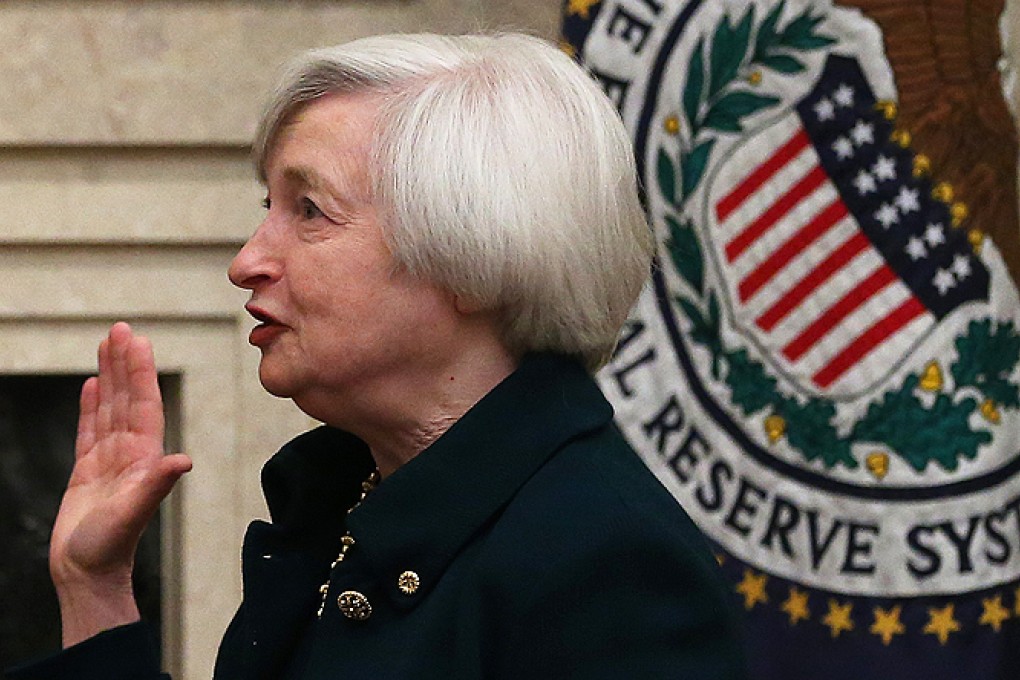Janet Yellen sworn in as first woman to chair US Federal Reserve
Yellen makes no remarks at Washington ceremony – quantitative easing and jobs figures offer first tests

Janet Yellen was sworn in as the first woman to head the United States Federal Reserve on Monday, ascending to the top job at the central bank at a time when the American economy seems on a firmer footing but investors are worrying about a slowdown in China and other emerging markets.
The 67-year-old was sworn in by the bank’s governor Daniel Tarullo, the senior member of the Fed’s seven-member board, in a brief ceremony in front of a fireplace in the Fed’s massive board room. Her husband, the Nobel-winning economist George Akerloff, was present. She made no remarks.
Yellen will have her work cut out immediately. On 11 February, she will appear before a congressional committee to answer questions on the economy, her policy views and regulation. She will then have to begin preparing for her first meeting as chair of the Federal Open Markets Committee (FOMC), which sets interest rates and monetary policy. That meeting, on 19-20 March, will be followed by her first press conference as Fed chair.
Yellen takes control of the Fed as the central bank has begun to unwind its massive economic stimulus programme, known as quantitative easing (QE). Yellen was a staunch supporter of QE as vice-chair to her predecessor, Ben Bernanke.
Started in September 2012, the third round of QE saw the Fed buying US$85 billion a month in mortgage bonds, treasuries and other securities in order to keep interest rates down and stimulate investment. Last month the Fed trimmed back the amount to US$65 billion, as it said there were “cumulative” signs of improvement in the economy.
Gus Faucher, senior economist at PNC Bank, said Yellen was now involved in a delicate balancing act. “She has to unwind QE slowly enough so that the recovery doesn’t stall while making sure that she moves quickly enough that inflation doesn’t rise,” he said.
“There’s no question that the Fed’s efforts are causing problems for emerging markets, but Yellen’s mandate is for the US.”